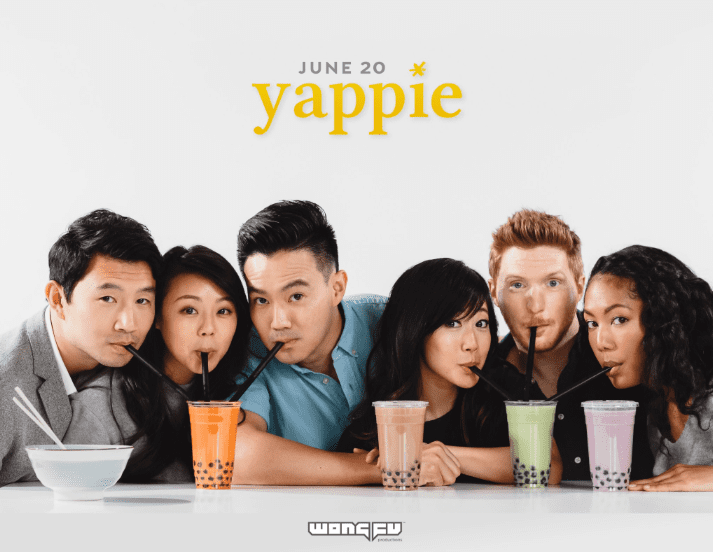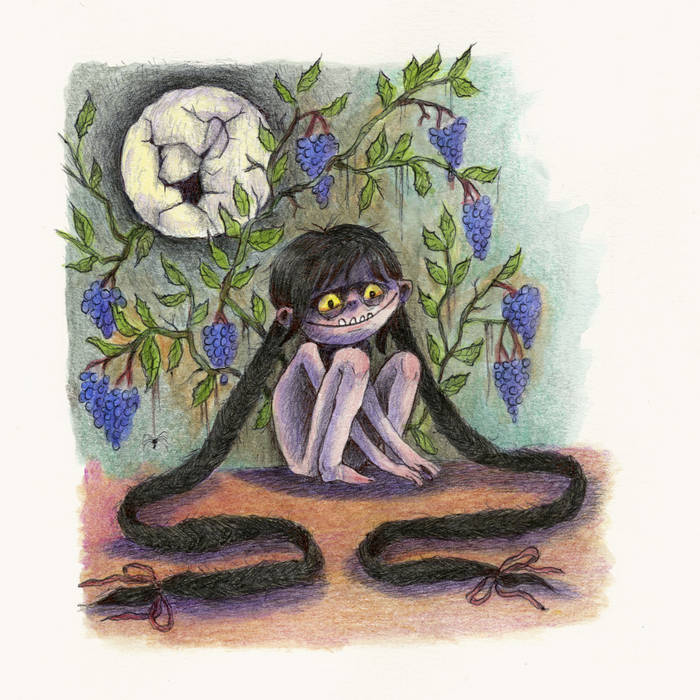UCSD alumni Taylor Chan and Philip Wang break down walls and build bridges in WongFu Productions’ fresh, innovative YouTube series.
On June 19, WongFu Productions, an independent production company founded in 2006 by three UC San Diego alumni, hosted a private, premiere screening of its latest YouTube series, “Yappie.” It was primarily directed to their new Patreon Careholders, investors dedicated to lifting a majority of the financial burdens that have plagued WongFu in the past, as well as a to a few online giveaway winners. The showing consisted of a brief introduction, a group binge-watch of the entire first season, and a Q&A with the writers/directors, assistant director, director of photography, wardrobe stylist, and cameraman (Taylor Chan, Philip Wang, Benson Quach, Christopher Yang, Jennifer Le, and Wesley Chan).
Presented in a cozy, small theater off the streets of downtown Los Angeles, the five-episode series lasts for approximately 80 minutes, about the length of a feature film, and it radiates a newfound vigor to divulge the intricacies of the Asian-American identity.
“Yappie” follows Andrew (Philip Wang), a Chinese-American engineer who gradually uncovers and later must navigate through the social realities of being a part of the Asian-American minority. Within the first six minutes of the first episode, he is labeled a “yappie,” which WongFu define as “a young Asian professional who acts like a yuppie.”
Yet, while he owns a BMW, works a stable job, and wants to “settle down in a nice suburb” in the future, Andrew begins to question the comfort of his “yappie” experience. Even his sister, in the first episode, bluntly points out his unconscious choice to reside in his secure bubble of friends and family. This, along with a recent breakup with a girlfriend who classified him as “too safe,” incites Andrew to extend past the convenience of his secluded world with a desire to learn more about others and himself.
Each episode, much like the show “Master of None” that was Wang’s inspiration, seeks to investigate a particular boundary that Andrew has unknowingly set up for himself. Dante Basco’s performance in the first episode effectively establishes the series’ social justice agenda, painting a food platter analogy that organizes the Asian-American perspective as unique due to the minority’s ability to “relate to every type of hate.” From retaining immigrant and refugee backgrounds to holding a history of segregation and racism to being perceived as enemies of the free world, Asian-Americans take a little piece of everything from the oppression platter without fully suffering from a single issue, like many other minorities do. Yet, as Basco stresses, they also enjoy economic mobility and privilege, though not to the extent of white people.
In subsequent, to-be-released episodes, “Yappie” pushes further to explore other difficult topics, including the emasculation of Asian men, fetishization of Asian women, complexities of dating white versus non-white partners, intergenerational differences, and the diversity of pan-Asian America.
Accompanied by his quirky group of friends, Andrew progressively educates himself more and more through reaching out and ripping through the veil that has so frequently obscured the Asian-American experience. By episode five, he encounters firsthand the rawness of his minority’s wounds in a jarring confrontation with his girlfriend’s racist ex at a party.
WongFu, however, successfully turns the situation upward by the end of the season, speaking to Wang’s own optimistic perspective on Asian-American activism and representation.
Andrew falls back on hope. Drawing strength from his own support system, his simple decision to challenge the status quo encourages discussion, open-mindedness, and genuine empathy. This, in turn, spurs on the rest of his friends to assess the impact of their own actions and engage in conversations that expose their own problematic decisions. In this way, “Yappie” proves to be an exceptional, much-needed voice in mainstream media.
“Yappie” maintains the light-heartedness of past WongFu content while preserving the rigor of tackling intricate racial and social issues within a short span of time. For a self-funded, independent YouTube series, “Yappie” strongly measures up to the quality of other, studio-backed television shows. Aside from a few, disorienting cuts and some awkwardly framed dialogue, the vivid cinematographic style by Christopher Yang, distinct wardrobe selections by Jennifer Le, Asian-American music features, and dynamic cast all significantly contribute to a well-rounded, powerful original.
Though Wang, in the midst of his efforts for Asian-American representation in media, faced some backlash for the inclusion of a white male character (Brad Gage), the following episodes reveal his purpose in serving as a problematic counter to the minority experience, or as WongFu writes in the character descriptions, “the benevolent dork who does his best as a white guy to be ‘woke’ but often overcorrects.”
In the Q&A, Chan and Wang revealed future plans to expand into other niches within the Asian-American minority, specifically that of the hapa (mixed or part Asian) and LGBTQA+ communities, which have been missing components from a majority of the production company’s content. Yet, the representation of such groups depends on accruing enough popularity and support from their first season.
Wang also emphasized his desire for authenticity and transparency in the production and marketing of “Yappie.” Whether it be casting performers that truly relate to their characters or vulnerably acknowledging the financial hardships in creating the series, WongFu Productions continuously displays its utmost dedication to the only audience that truly matters — its fans. This also arrives in the form of providing insightful, valuable content on YouTube for free. The first episode of “Yappie” is currently available on the WongFu Productions YouTube channel. Subsequent episodes will be released over the course of the next four weeks, with one episode published every Wednesday. WongFu, however, also features the option of purchasing the entire series on Vimeo for just $10, which serves as another excellent way to show support for such eye-opening content.
Grade: A-
Writers & Directors: Philip Wang, Taylor Chan
Starring: Philip Wang, Julie Zhan, Janine Oda, Victoria Park, Simu Liu, Brad Gage
Release Date: June 20, 2018
Image courtesy of WongFu Productions














